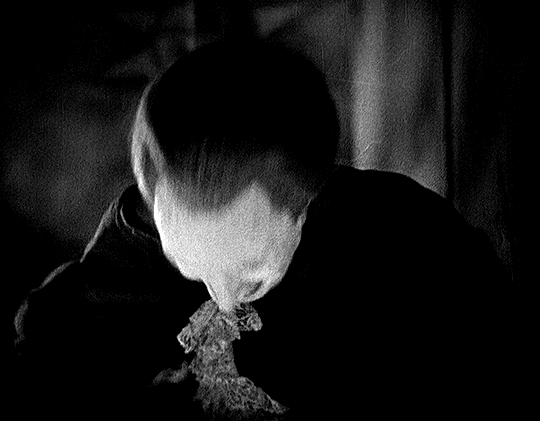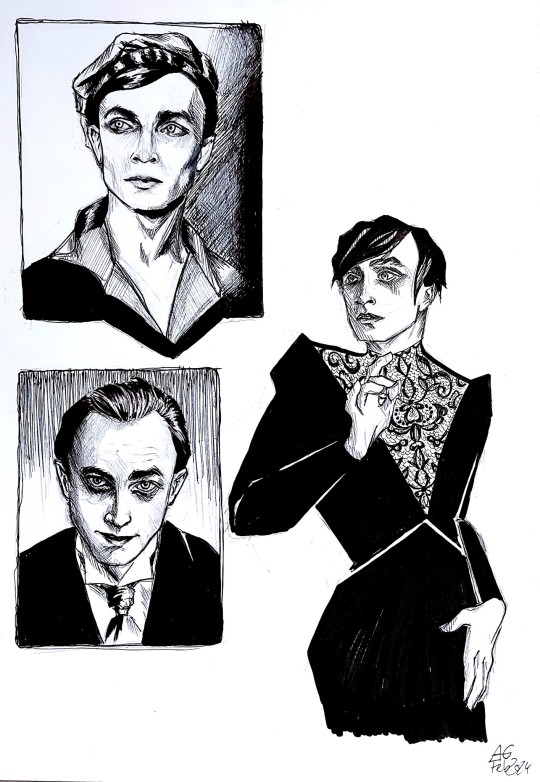#actor: conrad veidt
Explore tagged Tumblr posts
Text

German-British actor Conrad Veidt on a vintage postcard
#postal#german#actor#historic#ansichtskarte#conrad#sepia#veidt#vintage#tarjeta#briefkaart#photo#british#conrad veidt#postkaart#ephemera#postcard#postkarte#photography#carte postale
105 notes
·
View notes
Text

German actor Conrad Veidt.
103 notes
·
View notes
Text






Just...this type of scenes with Connie!
26 notes
·
View notes
Text

#🖤🖤🖤#i fear#aesthetically pleasing#smoking#is like kinda my thing#conrad veidt#film#actor#b&w#gif#vintage#vintage aesthetic#gothic#goth#gothgoth#goth aesthetic#gothic aesthetic#grunge#grunge aesthetic#black and white#black and white aesthetic#dark aesthetic#1900s#written by lana del rey#aesthetic#aesthetics#source: pinterest#alchemistmelody#:)
82 notes
·
View notes
Text
Take El*n M*sk and bring back this goth icon.






#conrad veidt#the man who laughs#the cabinet of dr. caligari#das cabinet des dr. caligari#the hands of orlac#1920s#1920s cinema#1920s movies#gothic#goth#actor#old cinema#silent film
25 notes
·
View notes
Text
Christopher Lee on Conrad Veidt
"In 1938 or 39, I can't quite remember precisely, but it was long before I decided to become an actor, and certainly some time before i learned to love golf, I was walking with a friend of my mother's, a very attractive Viennese lady on the golf course, at Wentworth in Surrey. I think she'd been to see a film, and she was going on about it, and saying how much she enjoyed it, and how marvelous the leading actor was, and that in fact she had known him. I rather gathered rather well, and I said 'Oh, I have seen the same film.' It was either Spy in Black or Contraband or one of those pictures that was made before the war, and I was saying to her what a wonderful actor I thought the leading player was, and how he was my idol, and I wished one day that i could be like him. Although, it was still not a question of becoming an actor, and we were talking continually between us about the same man, she from obvious experience, and me just out of the idolatry of a film goer.
And to my complete amazement, Conrad Veidt, one of the greatest actors in the history of the cinema, who actually died on the golf course of a heart attack at the ridiculous age of 49 (I think Casablanca was his last film.) Conrad Veidt suddenly appeared in front of us, playing the hole.
He was a very keen golfer. Well, as you can imagine I was to say the least overcome. Now, later that year he starred as the evil vizier Jaffar in the most wonderful fantasy adventure ever made The Thief of Baghdad. I will never forget--"
youtube
127 notes
·
View notes
Text
Can we have men like this again please







#weird lil character actor types y’know <3#conrad veidt#anthony perkins#vincent price#peter lorre#bela lugosi#dwight frye#buster keaton
179 notes
·
View notes
Text
Remembering silent film icon and the star of The Cabinet of Dr. Caligari on the anniversary of his death.









R.I.P. 1893 - 1943
#rest in peace#conrad veidt#actor#the cabinet of dr. caligari#the man who laughs#silent film#classic film#art#movie art#drawing#movie history#r.i.p#horror art
13 notes
·
View notes
Text
Happy birthday Conrad Veidt!




16 notes
·
View notes
Text
Some immigrant refugees, with what Donald Trump presumes to be their favorite delicacies.







#silver screen#vintage hollywood#pets#dog#cat#peter lorre#ingrid bergman#s. z. sakall#marlene dietrich#hedy lamarr#helmut dantine#conrad veidt#siamese cat#german shepherd#great dane#donner#the mask of dimitrios#cornelius leyden#pooch#donald trump#2024 elections#casablanca#1940s#classic film actors#movie stars#animals#they're eating the dogs and the cats#presidential debate#kamala harris#please
36 notes
·
View notes
Text

German-British actor Conrad Veidt on a vintage postcard
#postal#german#actor#historic#ansichtskarte#conrad#sepia#veidt#vintage#tarjeta#briefkaart#photo#british#conrad veidt#postkaart#ephemera#postcard#postkarte#photography#carte postale
63 notes
·
View notes
Text
being into silent film is wild like imagine getting horny for an actor who’s old enough to be your great great grandparent
#most of my favorite actors are dead ☹️#conrad veidt#silent cinema#silent era#luckily we do get to hear his voice though. eventually.#old movies#golden age of movies#text post
49 notes
·
View notes
Text

"Conrad Veidt, of men, is not one of those who apparently possess 'sex appeal.' John Gilbert, William Haines, and William Powell have much more. But Conrad Veidt has something that makes him very curious. He is sensual. But in his brain...He is one of those who suffer from cerebral voluptuousness."--Cinearte magazine, 1931
https://archive.org/details/1931-setembro-19-sabado-e/1931%20Setembro%2009%20Quarta-feira%20a/mode/2up
#Conrad Veidt#silent film#silent movies#classic film#classic movies#1930s actors#John Gilbert#William Haines#William Powell#Cinearte#Brazil#the cabinet of dr. caligari#casablanca
27 notes
·
View notes
Text

#sometimes i wonder whether I should prioritise sleep over art#but it's whatever I guess#and I fall hard and fast and then I can't sleep anyway until I have drawn that person at least 600 times#conrad veidt#still aroace falling for long dead actors#i live to draw angular men in pretty clothing#my art
76 notes
·
View notes
Text

❤️𝕳𝖆𝖕𝖕𝖞 𝕭𝖎𝖗𝖙𝖍𝖉𝖆𝖞 𝕮𝖔𝖓𝖗𝖆𝖉 𝖁𝖊𝖎𝖉𝖙!❤️
(January 22, 1893 - April 3, 1943)
#conrad veidt#birthday remembrance#born on this day#1920s#1940s#cinema#german actor#classic film stars#the cabinet of dr. caligari (1920)#the thief of bagdad (1940)#I love him sm <3#my post
11 notes
·
View notes
Text

Conrad Veidt
Actually Hans Walter Conrad Veidt, was a German-British actor, born on 22 January 1893 in Berlin. initially became famous in Germany, thanks to films such as: "Different from the others", "Das Cabinet des Dr. Caligari" or "The Hands of Orlac". After a career in silent films, he became a best-paid star UFA.
As a child, he lived in the family home at Tieckstraße 39 in Berlin with his mother, Amalie Marie, and Philipp Heinrich Veidt, a former military man who became a government official. his father was strict unlike his mother who was caring and sensitive. He came from a Lutheran family in the Lutheran Church and was baptized on March 26, 1893. He also had an older brother, Karl, who died in 1900 of scarlet fever at the age of 9. two years after Karl's death, his father became seriously ill and required heart surgery. As Conrad's family was not wealthy and could not afford such an expense, the doctor only demanded the fee that the family could afford. Young Veidt was delighted with the surgeon's kindness and swore to follow the example of the man who saved his father's life, from that moment on he wanted to become a surgeon. Niesetu's dream of becoming a surgeon was thwarted when he graduated in 1912 without a diploma and placed 13th out of 13 students, and was also discouraged by the amount of study it took to get into medical school. However, a new career path opened up for Conrads during a Christmas performance in which he delivered a long prologue before the curtain rose. The performance was bad, but the audience thought that Veidt did really great. Conrad became interested in actors, but his father considered stage artists to be outcasts and often called them gypsies. Thanks to part-time work and pocket money from his mother, Veidt was able to afford to attend theaters in Berlin. After each performance he stood in front of the Deutsches Theater waiting for the actors or hoping that he would be mistaken for an actor. At the end of the summer of 1912, he met a theater porter who introduced him to the actor Albert Blumenreich, who agreed to give Corad acting lessons for six marks. He was given 10 lessons before auditioning for Max Reinhardt reciting Goethe's Faust. Reinhardt offered Veidt a contract as an assistant for one season from September 1913 to August 1914, with a salary of 50 marks per month. During this time he played episodic roles as spear carriers and soldiers. His mother attended almost every performance of her son. After a successful career, they decided to extend his contract for a second season, but World War I broke out and on December 28, 1914, Conrad was enlisted in the army. In 1915 he was sent to the Eastern Front as a non-commissioned officer and took part in the Battle of Warsaw. In the meantime, he contracted jaundice and pneumonia and had to be evacuated to a hospital on the Baltic Sea. While convalescing, he received a letter from his girlfriend Lycie Mannheim informing him that she had found a job at the Front Theater in Liepāja. This news prompted Veidt to apply to the theater. because his condition was not improving, the army allowed him to join the theater so he could entertain the soldiers. While working in the theater, his relationship with Lucie ended. In 1916 he was examined by the army again and found unfit for service; On January 10, 1917, he was granted full parole. Conrad returned to Berlin where he was accepted back into the Deutsches Theater. There he played a small role as a priest which earned him a favorable review - the reviewer hoped that "God would save Veidt from the cinema" but luckily this did not happen.

One of his first and most important films was the role of a sleepwalker in "Das Cabinet Des Dr. Caligari" (1920) directed by Robert Wiene, which became a classic of German and expressionist cinema. The film also changed a lot in cinematography and was quite controversial for its time, but now it is well known to us and appreciated by every fan of cinematography. he also first starred in the film "Anders als die Andern" (1919) in which Conrad and Reinhold Schünzel played the main roles. All copies of the film were corrupted by the Nazis because the homosexuality depicted in the film was considered a disease at that time. Currently, only a small part of the film can be watched, that is, the part of the film that was saved. In 1924, he played in the film "Orlac's Hands" based on the book by Maurice Renard. It's time for Conrad's great success outside Europe. In 1928, he played the role of Gwynplaine in the film "The Man Who Laughs" based on the book by Victor Hugo (I recommend watching the film, it's really great. Conrad's role in this film influenced culture, Joker's appearance is inspired by the Veidt. Of course, it is worth mentioning roles in horror films, e.g. "Der Student Von Prag" (1926) and "Das Wachsfigurenkabinett" (1924). He also starred in the first German film with sound. "Das Land ohne Frauen" (1929). At the end of the 20s he went to Hollywood where he played a few roles, but with the advent of sound in films he had to give up acting in America and returned to Germany. During this time, he became a teacher for many aspiring artists, including Lisa Golm.Interesting fact: the role of Dracula was written specifically for Conrad, but Veidt was afraid that his English was too poor, instead the role of Dracula was played by Béla Lugosi, whose English was not better.

Veidt did not support the Nazi regime and sent funds to help the British during the German Blitz bombings. Shortly after the Nazi Party took power in Germany in March 1933, Joseph Goebbles purged the film industry of political opponents and Jews. In April 1933, a week after Cornad's wedding to Prager, a Jewish woman also known as "Lilli", they emigrated to Britain before any action could be taken against them. Goebbles imposed a "race questionnaire" in which every actor employed in Germany had to declare his "race" in order to continue working. When Veidt filled out the questionnaire, he answered the question about his race by writing "Jew." Veidt was not of Jewish origin, but his wife was, and Veidt would not abandon the woman he loved so much or cooperate with the regime, as many others did. Veidt was against anti-Semitism and showed it publicly and said it loudly. he supported Jews who were deprived of German citizenship in the spring of 1933. Conrad was informed that if he got a divorce and declared support for the new regime, he would still be able to operate in Germany, which he rejected because, as he claimed, nothing could cause him to divorce Lilli. After arriving in United Kingdom, Veidt improved his English and starred in the original anti-Nazi films The Wandering Jew (1933) and Jew Süss (1934). On February 25, 1939, he received British citizenship. During this time, Conrad made films in both French and English.
I think these are the key and important moments in Conrad Veidt's life.
Trivia
Conrad, through his lawyers, gave children locked in shelters in London 2,000 tins of sweets, 2,000 large packets of chocolate and 1,000 gift envelopes in the form of British currency. all to improve their mood during the Christmas :)
Veidt helped his parents-in-law from Austria get to Switzerland and in 1935 he managed to obtain permission from the Nazi government for his ex-wife and their daughter to move to Switzerland. He also offered to help Felizitas' mother ( his ex-wife's mother), Frau Radke, leave Germany. but she refused, saying "no damn little Asutrian Nazi corporal will make me leave my house." Apparently she survived the war, but Corad never saw her again.
"There are two different kinds of men. There are the men men, what do you call them, the man's man, who likes men around, who prefers to talk with men, who says the female can never be impersonal, who takes the female lightly, as playthings. I do not see a man like that in my mirror. Perhaps, it is because I think the female and the male attract better than two men, that I prefer to talk with females. I do. I find it quite as stimulating and distinctly more comfortable. I have a theory about this - it all goes back to the mother complex. In every woman, the man who looks may find - his mother. The primary source of all his comfort. I think also that females have become too important just to play with. When men say the female cannot discuss impersonally, that is no longer so. When it is said that females cannot be geniuses, that is no longer so, either. The female is different from the male. Because she was born to be a mother. There is no doubt about that. But that does not mean that, in some cases, she is not also born a genius. Not all males are geniuses either. And among females today there are some very fine actresses, very fine; fine doctors, lawyers, even scientists and industrialists. I see no fault in any female when she wears slacks, smokes (unless it is on the street, one thing, the only thing, which I don't like), when she drives a car... when men say things like "I bet it is a woman driving" if something is wrong with the car ahead - no, no. These are old, worn out prejudices, they do not belong in today"
~°~
Conrad died on April 3, 1943 from heart disease.
(Sorry for any mistakes, remember I'm not from an English-speaking country, the information comes from Wikipedia and various websites that you can easily find :)
#actor#movie#movies#old movies#old cinema#1930s#1920s#conrad veidt#das cabinet des dr. caligari#the hands of orlac#waxwork#the man who laughs#old hollywood#classic hollywood#cinema#the cabinet of dr. caligari
28 notes
·
View notes